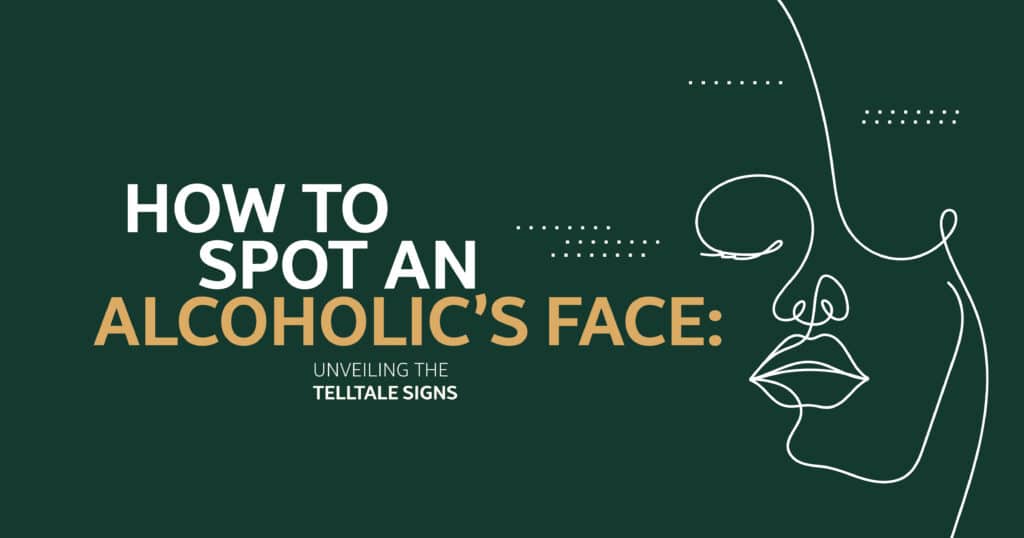Quick Summary
Physical signs that may indicate excessive alcohol use include flushed cheeks, broken blood vessels around the nose and cheeks, bloodshot or glassy eyes, and facial puffiness or swelling from dehydration.
Behavioral and emotional indicators can include persistent fatigue with droopy features, forced smiles that don’t reach the eyes, evasive eye contact, and facial expressions reflecting sadness, anxiety, or sudden emotional shifts.
Recognizing these signs can be a first step toward seeking professional support and personalized treatment.
Key Takeaways
- Flushed cheeks and broken blood vessels on the face, especially around the nose and cheeks, may result from dilation of blood vessels due to alcohol consumption.
- Facial puffiness and swelling can occur because alcohol dehydrates the body, causing it to retain water in an attempt to compensate.
- Emotional signs such as chronic fatigue, forced smiles, evasive eye contact, and inconsistent facial expressions may reflect internal struggles linked to alcohol dependence.
- Outpatient treatment programs can offer individualized plans, counseling, therapy, and support systems to address both addiction and underlying contributing issues.
In a world where the pace is relentless and stress seems to be an uninvited guest at every doorstep, the struggle with alcoholism is more prevalent than ever. New Origins, an outpatient addiction treatment program for men, stands as a beacon of hope for those on the journey to recovery. Today, we embark on a unique exploration – decoding the language of faces, revealing the subtle hints that might just scream, “I might have a problem.”
The Mask of Sobriety
Behind the Veil: The Concealed Battle
Alcoholism is often a silent battle, fought behind closed doors and masked with a smile. It’s not always easy to recognize, but the face can be a canvas where the struggles manifest. Here’s what to look for:
Flushed Cheeks and Broken Vessels
- If you notice a perpetual blush or broken blood vessels on the face, especially around the nose and cheeks, it might be a sign of excessive alcohol consumption. The dilation of blood vessels due to alcohol can cause a flushed appearance.
The Deceptive Glint in the Eyes
- While the eyes are often considered windows to the soul, they can also be deceptive. Bloodshot or glassy eyes might betray a night of heavy drinking, even if the person insists they are perfectly fine.
Puffiness and Swelling
- Alcohol is notorious for dehydrating the body. If you notice puffiness and swelling on the face, it could be a red flag. The body, in an attempt to compensate for the dehydration, retains water, leading to a bloated appearance.
Decoding Facial Expressions
The Subtle Shifts: Reading Between the Lines
Alcoholism can carve its mark on a person’s face through nuanced changes in expressions. Here’s a closer look:
The Wearied Look
- Chronic fatigue and exhaustion are common companions of excessive drinking. If someone’s face seems perpetually tired, with sagging or droopy features, it might be more than just a lack of sleep.
The Hiding Smile
- A genuine smile reaches the eyes. If the smile doesn’t quite make it there or seems forced, it could be a cover-up. The internal struggles may be overpowering the external expressions.
Evasive Eye Contact
- The eyes can reveal more than words ever could. If someone avoids eye contact or seems uneasy when looked in the eye, it could be a sign of guilt or shame associated with their drinking habits.
Beyond the Physical: Psychological Clues
The Mind-Body Connection
Alcoholism doesn’t just leave its mark on the exterior; it seeps into the psyche, reflecting in thoughts and behavior. Here’s how it manifests:
Emotional Turmoil etched on the Face
- A face can mirror the inner emotional chaos. Look for signs of sadness, anxiety, or even irritability. The face might tell a story of internal struggles that words fail to articulate.
Inconsistencies in Facial Expressions
- Alcohol can play tricks on the mind. If you notice inconsistencies in a person’s facial expressions – sudden shifts from joy to sadness or anger – it might be indicative of the emotional rollercoaster that accompanies alcohol dependence.
The Shadow of Regret
- Regret is a heavy burden to carry, and it often leaves its imprint on the face. If you sense a perpetual shadow of regret in someone’s expressions, it could be linked to the consequences of their drinking habits.
New Origins: A Ray of Hope
A Fresh Beginning: Nurturing New Origins
Recognizing the signs is just the first step in the journey to recovery. New Origins, with its focus on outpatient addiction treatment, offers a holistic approach to help men build the coping and life skills essential for long-term success.
Individualized Treatment Plans
- At New Origins, each person is treated as a unique individual. The program crafts personalized treatment plans, addressing not just the addiction but also the underlying issues contributing to it.
Counseling and Therapy
- The power of conversation is immense. New Origins integrates counseling and therapy sessions to provide a safe space for individuals to express their thoughts, fears, and aspirations.
Building a Support System
- Recovery is not a solo journey. New Origins encourages the building of a robust support system, fostering connections that endure beyond the treatment program.
The Closing Chapter: A Glimpse into a Fresh Narrative
In conclusion, decoding the signs etched on an alcoholic’s face is not about judgment but about understanding. New Origins stands as a testament to the fact that every face tells a story, and it’s never too late to start a new chapter.
As we navigate the intricate landscape of recognizing the silent struggles, let’s remember that compassion and support can be powerful tools in the recovery journey. So, the next time you look into someone’s eyes, be more than a spectator; be a friend, be an advocate, and be a believer in the possibility of new beginnings.
